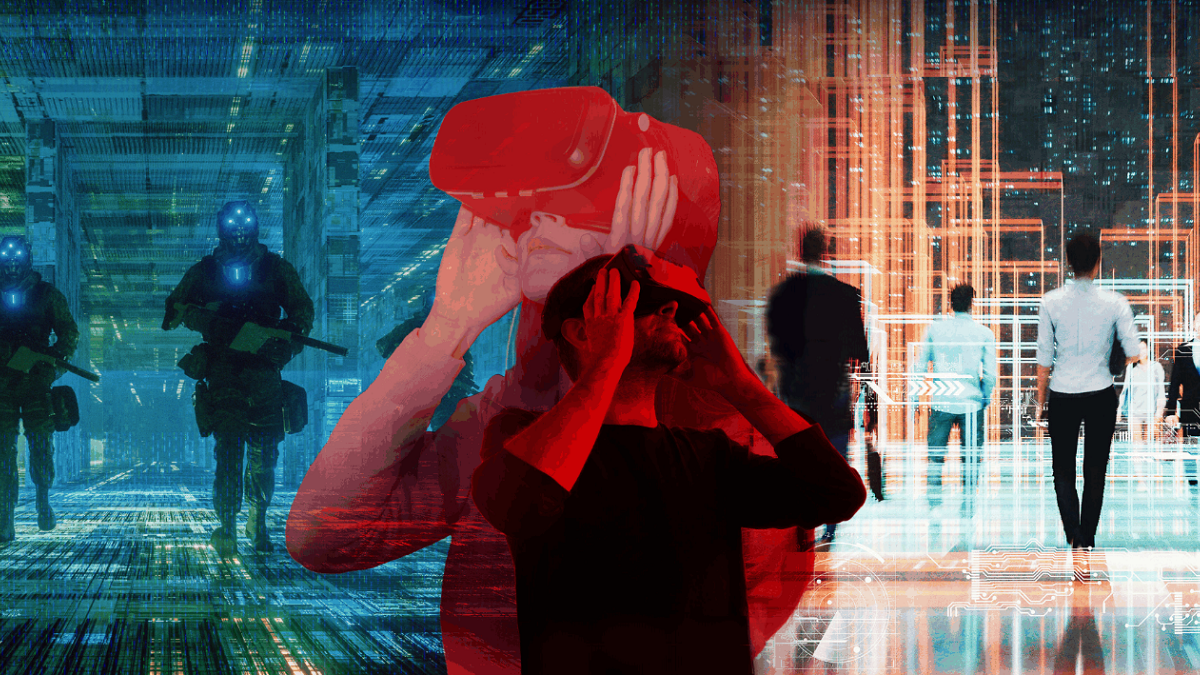According to a recent study conducted by NYU’s Stern Center for Business and Human Rights (CBHR), engagements within virtual reality (VR) environments have the potential to cause deep and enduring psychological distress.
Emphasising the necessity for comprehensive privacy legislation, NYU Stern’s CBHR went on to caution about substantial privacy risks within the rapidly expanding metaverse. While the metaverse undoubtedly has its benefits, they says it also presents, “Unprecedented” risks of the, “Potential erosion of privacy” as well as an increase in abuse within virtual spaces.
The report highlights that the primary concern lies not in the functionality of emerging devices like VR headsets but rather in how they use the data they gather from users. For example, researchers at the University of California, Berkeley, and Unanimous AI have recently demonstrated that even the simplest VR headset equipped with a motion tracker can amass substantial data about a user, encompassing their identity, demographic details, and even health information.
A free pass for bad actors
In addition to privacy concerns, unregulated virtual environments offer boundless possibilities for those with malicious intent. Even instances of physical harm within the metaverse can inflict psychological distress, as individuals immersed in a VR realm often have the perception that their experiences are genuine, as stated in the report.
The report recommends that Congress enact a, “Comprehensive privacy law” to safeguard consumer privacy and restrict the use of biometric data. It further encourages the government to bolster the Federal Trade Commission‘s authority in safeguarding consumers against, “Unfair and deceptive practices by technology companies” and to establish a federal entity with this specific responsibility.
The metaverse is still a nascent space
The study was carried out by Mariana Olaizola Rosenblat, a technology and law policy advisor at NYU Stern CBHR who also points out that current iterations of the metaverse are largely in their nascent stages of development. Noting that Meta’s Code of Conduct for Virtual Experiences is, “Ambiguous and under-inclusive.”
“It is unclear whether Meta monitors closed spaces — which it analogises to ‘your own living room’ – for illegal or egregious behaviour like child exploitation or extremist recruitment that is unlikely to be reported by the individuals involved,” Rosenblat wrote.
Meta, on the other hand, does not perceive any warning signs that would prompt them to halt the advancement of their metaverse. In fact, the tech giant’s CEO Mark Zuckerberg recently unveiled Meta’s photorealistic Codec Avatars which many believe could be the future of communication in the metaverse.
Isa Muhammad is a writer and video game journalist covering many aspects of entertainment media including the film industry. He's steadily writing his way to the sharp end of journalism and enjoys staying informed. If he's not reading, playing video games or catching up on his favourite TV series, then he's probably writing about them.



































